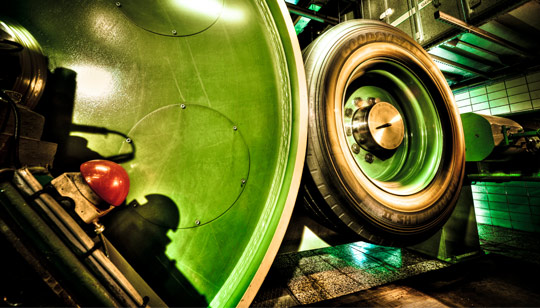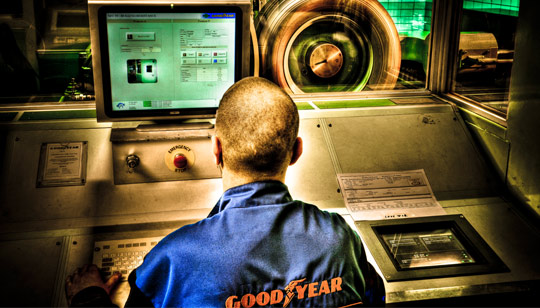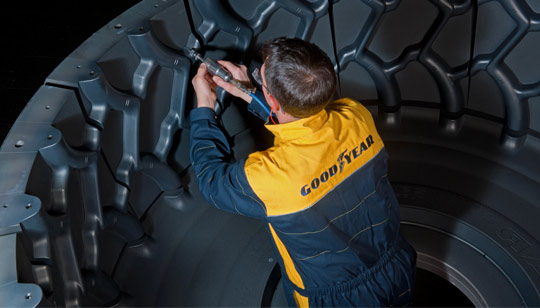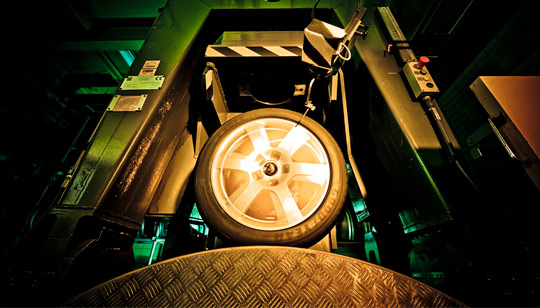How Tyres are Made
There are many different parts that go into the making of a Goodyear tyre and they all play an important role in making sure your vehicle performs at its best and keeps you safe.
The Parts of a Tyre
Beads
The beads are made from high-strength steel coated in rubber, and create an airtight seal between your tyre and the rim of the wheel.
Belt
Steel belts are placed around the tyre to reinforce strength and provide rigidity. These are made of woven sheets of steel wires that are coated in rubber. Sometimes Kevlar cord is also added for extra strength, puncture resistance, and durability.
Ply
The plies are the layers of fabric that make up your tyre’s skeleton, and are typically made of fibre cord that are woven together and coated with rubber. These allow your tyre to be flexible. A layer called the carcass ply is placed directly above the inner liner of the tyre and is what gives your tyre strength.
Sidewall
This is the area of extra-thick rubber that runs from the bead to the tread and gives your tyre its lateral stability. It’s also where you’ll find all the manufacturer information about your tyre.
Sipe and Groove
The tread blocks are separated by the deep grooves that allow your tyre to disperse water, snow and mud. Sipes are the smaller grooves or cuts made in the tread blocks themselves that give extra grip, which is especially important in a tyre made for snow and ice.
Shoulder
Your tyre has a small bevelled edge where the tread meets the sidewall. Its design and construction plays an important role in how your tyre helps you take corners.
Tread
This is the area of your tyre where the rubber meets the road. The tread provides both cushioning and grip, and its design and compound determine many of your tyre’s most important performance features.
The Process of Making a Tyre

Blend
Up to 30 ingredients are used in your tyre’s rubber blend. The ingredient proportions will depend on what the performance goals of the tyre will be. It’s composed of several types of rubber, fillers and other ingredients, mixed in giant blenders known as Banbury mixers. These create a black gummy compound that’ll be sent on for
milling.

Mill
Once the rubber is cooled, it’s sent to a special mill where the rubber is cut into strips that will form the basic structure of your tyre. At the milling stage, other elements of the tyre are prepared, some of which are then coated in another type of rubber.

Build
The tyre itself is constructed, from the inside out. The textile elements, steel belts, beads, ply, tread, and other components are placed in a tyre-building machine that ensures every part is in its precise location. This results in what looks like a relatively finished product, known as a green tyre.

Cure
The green tyre is then vulcanised with hot moulds in a curing press, compressing all of the parts of the tyre together and giving the tyre its final shape, including its tread pattern and manufacturer’s sidewall markings.



